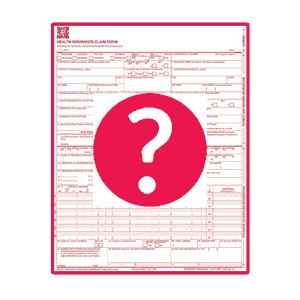CA Payors Put the Squeeze on Providers (Again)

In California, box 1a of the CMS 1500 billing form is for the injured worker’s Social Security Number (SSN). When the claims administrator insists the provider populate box 1a with anything other than the SSN, the claims administrator is noncompliant. But for the payors listed below, this non-compliance is a win-win-win strategy that cheats providers out of revenue by incorrectly denying bills.
DaisyBill’s mission is to help our clients overcome the many and varied obstacles that claims administrators put in the way of providers collecting payment for services to injured workers.
A Tactic That Swindles Providers
Are these incorrect denials another bad faith tactic used by some payors to avoid paying provider bills, or is it simple incompetence and misunderstanding of the law? In either case, a payor saves money when denying a bill, even when the denial is based on a noncompliant request for data to be moved to a different (and incorrect) field!
With this tactic, it’s a good bet that a substantial percentage of those denied bills will “disappear” because the provider is too frustrated to pursue payment.
The “misinformed” claims administrators who make this “mistake” include:
- Broadspire, a Crawford Company
- City of San Diego
In order to receive payment for these denied bills, a provider must submit a Second Review appeal within 90 days (or the bill is void). Because the provider’s billing system will still compliantly populate box 1a with the injured worker’s SSN, these claims administrators will likely deny the Second Review appeal for the same (invalid) reason they denied the original bill.
This leads a provider to pursue the next, painful, step in the appeals process: an Independent Bill Review, and the attendant $195 fee, headaches, and potential collection nightmare.
For a payor, these incorrect denials are equivalent to printing (unjustified) money.
Employers should take note of these noncompliant demands by their agents. They are unfair and wrong, and drive away providers from treating injured workers because they can’t get their bills paid. Employers, is this how you want your agents behaving on your behalf?
Unambiguous California Rules for the CMS 1500
As a reminder, the Workers’ Compensation Medical Billing and Payment Guide, published by California’s Division of Workers’ Compensation (DWC), makes the rules regarding box 1a very clear. There is no possible misinterpretation or wiggle room. As shown below, Appendix A of the Guide includes a Field Table for the CMS 1500, with the appropriate contents of each field listed for easy reference:
As shown, the field description for box 1a is “INSURED’S I.D. NUMBER.” While this number may vary from state to state, the DWC guide is unambiguous about what California providers must do: “Enter the patient’s Social Security Number,” or in the absence of an SSN, enter 999999999.
Further down, the Field Table clearly sets out that providers should enter the workers’ compensation claim number into box 11b, NOT in box 1a.
Simple, right?
That this simple rule could be ignored or misunderstood is just another example of the claims administrators’ arsenal of misguided policy, bad-faith tactics, and sheer ineptitude that all combine to impose impossible payment friction. Employers and the California DWC need to take note of this behavior.
For more help with the CMS 1500, see our 6-minute guide.
Let’s make this even easier. DaisyBill automatically populates required forms like the CMS 1500 with the right information, every single time. Our Billing Software also makes requests for Second Review quick and easy. Schedule a free demonstration today.
SCHEDULE DEMO
DaisyBill provides content as an insightful service to its readers and clients. It does not offer legal advice and cannot guarantee the accuracy or suitability of its content for a particular purpose.


.gif)